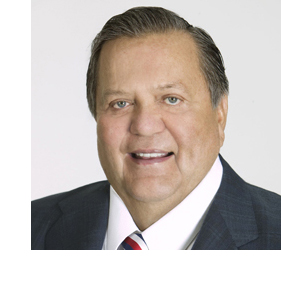Heading 2
Lorem ipsum dolor sit amet, consectetur adipisicing elit. Nostrum minus ea suscipit porro alias corporis libero at. Perferendis omnis, veniam nemo beatae vel? Tempora numquam a repellat eaque natus, magnam?
Heading 2
Lorem ipsum dolor sit amet, consectetur adipisicing elit. Autem ipsum mollitia neque, illum illo excepturi, eum incidunt fugit nostrum est, voluptate eaque minima corporis debitis at, dolores ipsam. Quaerat, dolores.
Heading 2
Lorem ipsum dolor sit amet, consectetur adipisicing elit. Autem ipsum mollitia neque, illum illo excepturi, eum incidunt fugit nostrum est, voluptate eaque minima corporis debitis at, dolores ipsam. Quaerat, dolores.
Heading 2
Lorem ipsum dolor sit amet, consectetur adipisicing elit. Autem ipsum mollitia neque, illum illo excepturi, eum incidunt fugit nostrum est, voluptate eaque minima corporis debitis at, dolores ipsam. Quaerat, dolores.
Heading 2
Lorem ipsum dolor sit amet, consectetur adipisicing elit. Autem ipsum mollitia neque, illum illo excepturi, eum incidunt fugit nostrum est, voluptate eaque minima corporis debitis at, dolores ipsam. Quaerat, dolores.
The California Grocers Association joined the state’s grocery industry in mourning the passing of Jack H. Brown, Executive Chairman of Stater Bros. Markets on Sunday, November 13, 2016.
 “We are all deeply saddened to learn of the passing of Jack Brown,” said CGA President/CEO Ron Fong. “Jack was a true grocery icon in Southern California. He was respected by peers, employees and by the many organizations he so generously supported over the years. Our thoughts and prayers go out to his loved ones and the entire Stater Bros. family. He will truly be missed.”
“We are all deeply saddened to learn of the passing of Jack Brown,” said CGA President/CEO Ron Fong. “Jack was a true grocery icon in Southern California. He was respected by peers, employees and by the many organizations he so generously supported over the years. Our thoughts and prayers go out to his loved ones and the entire Stater Bros. family. He will truly be missed.”
The following announcement was released by Stater Brothers Markets:
SAN BERNARDINO, CALIFORNIA – (November 14, 2016) – It is with a heavy heart that Stater Bros. Markets announces the passing of “Our Jack”. Surrounded by his entire family, Jack H. Brown passed away on November 13, 2016 at 10:45 p.m.
A native of San Bernardino, California, Brown began his Supermarket career as a box boy at Berk’s Market Spot in San Bernardino at the age of thirteen (13), sparking a sixty-five (65) year career in the grocery industry. Brown was passionate about the supermarket industry. He loved his “Family” of Employees and the loyal Stater Bros. customers who he proudly served since taking the helm of Stater Bros. Markets.
Brown joined Stater Bros. in 1981. He served as President and Chief Executive Officer of Stater Bros. Markets for over thirty-five (35) years and as Chairman for Stater Bros. for over thirty (30) years. Brown became the Executive Chairman after appointing Pete Van Helden to the position of President and CEO earlier this year.
“Grief is not a strong enough word to describe what the Stater Bros. ‘Family’ feels,” stated Stater Bros. President and CEO Pete Van Helden. “Jack touched every one of us in a very personal way, and it is that legacy that we must carry forward. He loved the business, his company and each one of us,” Van Helden continued.
Brown was a proud Navy Veteran who served on active duty with the Pacific Fleet of the United States Navy during the Vietnam era. Brown’s support of the military and our nation’s veterans remains unparalleled.
In 2004, he received the “Friend of the Veteran Award” from the Riverside National Cemetery’s Veterans’ Advisory Committee for his continued support of volunteer services to Veterans and their families. Brown also received the “Patriot Award” in 2011, the highest award the Congressional Medal of Honor Society can bestow upon an individual.
In addition, Jack was one of ten Distinguished Americans to receive the 1992 “Horatio Alger Award” in Washington, D.C., in recognition of his outstanding contributions to America and the “American Dream.”
Brown has received countless awards for his contributions to the supermarket industry. In 2001, Brown received the California Grocers Association “Hall of Achievement Award” for a lifetime of dedication to the grocery industry, and in 2005, he received the prestigious “Sidney R. Rabb Award”, the Supermarket Industry’s highest award.
Brown has been recognized for his generosity in giving back to the “valued” communities he loved and so proudly served. In 2008, he established Stater Bros. Charities, the philanthropic arm of Stater Bros. Markets as a way to give back in a larger way. Brown was a founder of the Boys and Girls Club of San Bernardino, and the Founding Chairman of Children’s Fund of San Bernardino County.
Most recently, the California State University Board of Trustees named the “Jack H. Brown” College of Business and Public Administration at California State University San Bernardino in July, 2016.
Brown will be remembered with love, affection, and by his countless acts of kindness. He was an incredibly thoughtful man whose accomplishments and generosity will be remembered for many years to come.
Brown is survived by his cherished wife Debbie, three beloved daughters; J. Kathleen Smith (Michael Smith), Cara Hoffman (Scott Hoffman) and Melissa Koss (Pete Koss). He had seven grandchildren, Kaitlyn, Colleen, Caden, Dylan, Julianna, Jack Ryan and Emma.
His burial will be private for family only with a memorial to follow at a later date.

